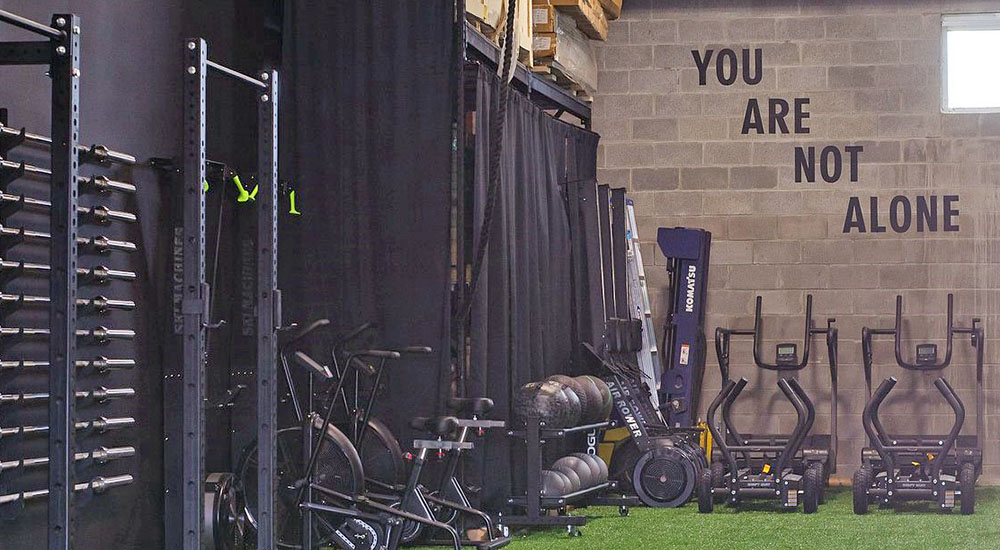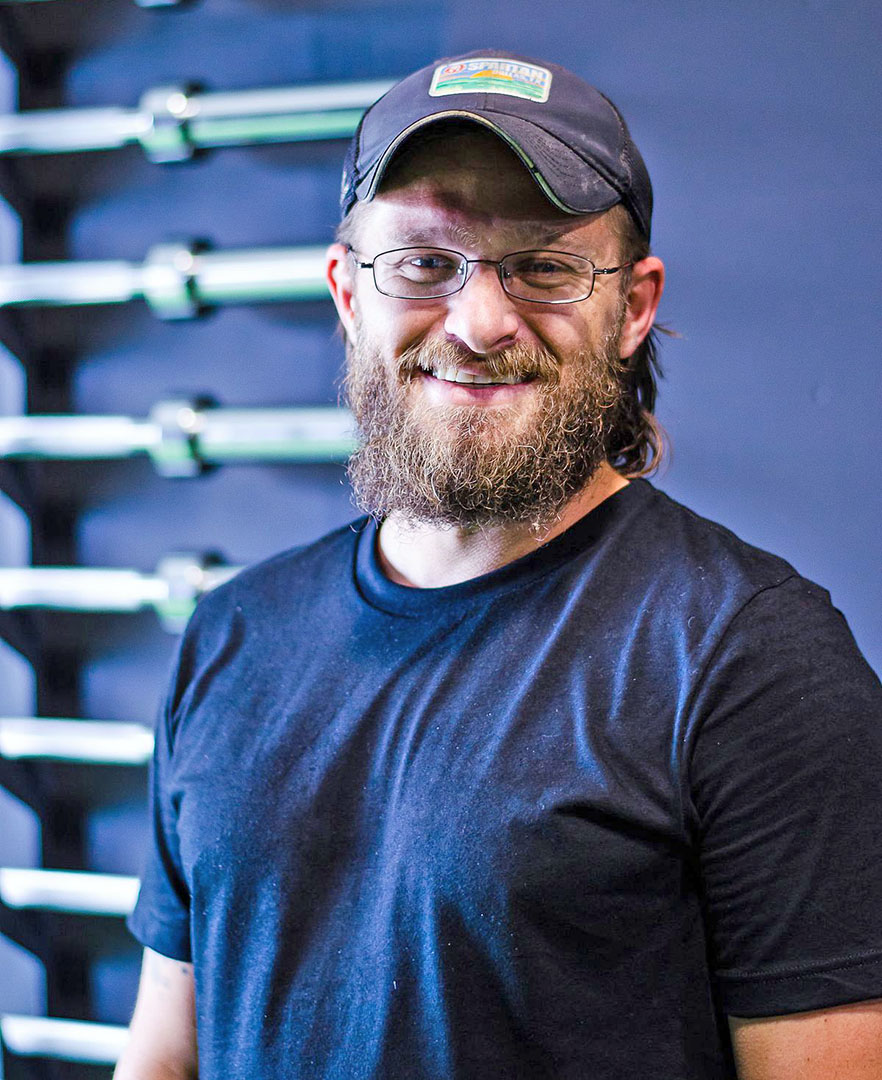VA researcher Dr. Daniel Reis studies lifestyle and mental health outcomes. In this episode, hosted by VA Psychologist Dr. Edgar Villarreal, they discuss exercise as an alternative treatment option for Veterans living with PTSD through the lens of both research and lived experience.
Army Veteran Adam Holt struggled with PTSD, substance use, homelessness and suicide attempts.
In the podcast below, Holt explains how his recovery journey literally led to “running from relapse. I’d go run on the Greenbelt when I had a craving, even if it was two in the morning. Eventually I started going to the gym.” Over time he noticed his PTSD symptoms were going away, “Almost as though life started having color back in it.”
“It’s really hard to explain if you haven’t experienced it, but I found myself laughing more and crying more,” he says. “I found myself able to just experience emotions where I had almost turned those off for so many years. It really allowed me to experience life so that I could then show up and work through it.”
Exercise as alternative treatment option
Reis shares the findings of his article that reviewed research on the effects of exercise: Exercise to Reduce Posttraumatic Stress Disorder Symptoms in Veterans. Traditional therapies and treatments for PTSD work really well but may not work for everyone.
“We’re seeing a lot of interest in these complementary and alternative treatments, of which exercise is one,” says Reis. “It’s well known that exercise can have a host of benefits for physical health. And increasingly, we’re seeing research emerge that mental health is part of the same system and we can really get effects here.”
“Recovery through physical activity saved my life.”
Holt was inspired by his own recovery and a desire to help others. He recently founded Outsiders Anonymous, a 100% free gym for Veterans with PTSD located near Austin, Texas. “I really encourage people to incorporate physical activity into their recovery program as a complementary approach. It saved my life and I’m sure it can save yours.”
Short Takes on Suicide Prevention is a VA Podcast Network series produced by the VA Rocky Mountain Mental Illness Research Education and Clinical Center. Listen and subscribe to Short Takes on your favorite podcasting app.
If you or a Veteran in your life is in crisis, call the Veterans Crisis Line at 1-800-273-8255 and Press 1, chat live, or Text 838255. Available 24/7.
Topics in this story
More Stories
Watch the Under Secretary for Health and a panel of experts discuss VA Health Connect tele-emergency care.
The 2024 National Veteran Suicide Prevention Annual Report provides the foundation for VA’s suicide prevention programs and initiatives.
Theranostics is a specialized field of nuclear medicine that uses a two-pronged approach to diagnose and treat cancer.








Its about time to see articles informing veterans has been experiencing good health condition; thru basic training military exercise. I always believe that the training received during are military career is a life time training for good health and pursuit of happiness. Each veterans should address there possibility to include basic exercise training; with there prime care medical section. All ready the wheel has been invented; why try any other method when we have been experiencing nation wide the good positive effect in exercising for a good healthy life. God Bless America / So God Help Us in the pursuit of a healthy nation.
I walk a lot even though my VA doctor of all people told me not to walk so much ! Can you imagine ? Glen my PT said my right leg is shorter than my left due to several hard falls on a small 30 ft rescue craft meant for harbor patrol only anyhow, not search and rescue. (CG30410) to be exact, an all steel craft so when you hit a big wave as we did many times, one was prone to very hard pounding and I took a number of falls to my right knee causing enough damage to make my right leg shorter. We were always told in the 1960’s to just suck it up which causes me to walk with a noticeable limp so never went to a doctor or anything. Ever heard, I am sure you have, “pain is only fear leaving the body. ”
So I still walk, still have tons of flashbacks and almost every PTSD symptom you can think of. But I found out about VA care 55-59+ years too late and eventually about how I have severe PTSD chronic. At least now I know I am not nuts and the movies playing in my head everyday and now more and more often are PTSD and I am not nuts. I have had the 13 week CPT course and monthly meetings with a MHC-sw and my Peer Support specialist for almost 3 years now. I understand it but most of my symptoms are worse and more often. Irritable, very easily startled, hyper-vigilant is putting it mildly, angry, on edge constantly, extremely anxious, panic attacks, adrenaline rushes, actually looking for a confrontation/fight. Don’t ask me why. I am almost 78, know Taekwondo, have a lot of aches and pains sore muscles, stiffness, arthritis, 40 known broken bones, shoulder and leg issues, hypertension, deaf as a rock almost due to loud noises in the military, yet I still think I can handle myself as when the adrenaline kicks in my mind blocks out all pain and fear. I start my ACT / Anger management course in about 1 month. I don’t have big hopes at my age, But who knows ? Hopefully the younger generations get help sooner. I am not particularly mad at the military, just disappointed. I was a volunteer and would do it again as I feel it is ones duty to the country. So sad that so few it it that way no a days, Entitled , millennials, spoiled brats, little to know parental guidance. brain washing in the schools to liberal leftist spineless wimps. Some time ask me how I really feel.
Grace and Peace,
Semper paratus,
Charlie
Everyone I talked with said exercise was at the top of the list for recovery.I spent a year doping exercise in two gyms with two trainers. I got well enough to be on my own. I plan to continue an exercise program to deal with remaining shadows. I have also us3ed the VA Mindfulness app